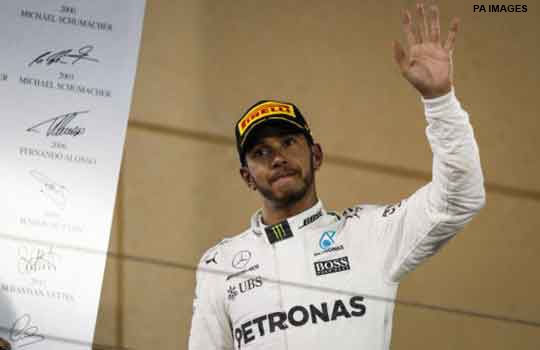 Many of the medical conferences I have attended recently have included sessions suggesting that the NHS is failing in its processes and that there is lots we can learn from industry. Most recently, I have been educated by the aviation industry, the energy industry, and the oil industry—as well as being shown what Formula 1 sport has to teach us. The lecturers were good and the information was interesting, but is it of any benefit to me, as an NHS clinician?
Many of the medical conferences I have attended recently have included sessions suggesting that the NHS is failing in its processes and that there is lots we can learn from industry. Most recently, I have been educated by the aviation industry, the energy industry, and the oil industry—as well as being shown what Formula 1 sport has to teach us. The lecturers were good and the information was interesting, but is it of any benefit to me, as an NHS clinician?
We were shown how the Formula 1 team spend their life practising in order to execute the perfect pit stop: running and re-running the events and scenarios that may crop up in any race, briefing and debriefing with the whole team to learn how the training day went, and running human interactive simulation—all in preparation for a 90 minute race.
What struck me from the presentation was that the costs were huge, human resources were plentiful, time was allocated for all this activity, and the person at the pinnacle and other members of the team were paid handsomely. Furthermore, the chief focus of the team is on providing the perfect working environment for the driver—this from a team which was unlikely to change for the season.
So, considering all this, how much can we really take from each other? To illustrate the difference in our working lives, I’ve conjured up this role reversal: Lewis Hamilton as me and me as Lewis Hamilton.
So, Lewis working in the world I inhabit. Imagine the end of a race. After tearing around the track for about 90 minutes, Lewis would immediately have to write a report of the race and ensure it is scanned into the team computer. He would also have to submit details of the race to a national register, so his race performance can be compared to the performance of others. He would have to input the data himself. He would then talk to his junior colleague, who had just watched the last race, and explain that the junior colleague could start the next race, but if after a certain number of laps it wasn’t going so well, he would take over. They certainly wouldn’t risk a poor outcome, although they recognised that the junior needed to develop his skills. He would be told, before completing all the paperwork associated with the last race (including an assessment of his junior colleague), that the car was on the start line ready to start the next race and he needed to get back to the car immediately.
Incidentally, Lewis might be told that when he has a pit stop in the next race, unfortunately, the team will be agency pit staff who have never seen a tyre change on this car before, but they’ll have a go. Oh, and they may have to change the pit staff if the race goes on too long as some of them are only allocated until 5pm. Lewis would squeeze in a debrief as a further imposition on his day, although no time had been allocated for this when it was introduced as an additional mandatory part of the day.
While in the second race, Lewis may get a call over his headphones asking him his opinion about another car in another race.
Meanwhile, I am living the life of Lewis. I have a programme with one operation every two weeks. Immediately after completing the op, I would pour the team some champagne, celebrating our successful execution of the procedure, while spraying the champagne over the anaesthetist and other members of the treatment team. I would then attend the timetabled debrief to look at how the op went. In the next two weeks, prior to the next op, we would run a virtual reality mock-up of the next procedure. The team, who would be the same all year, would practise getting the kit ready for the op again and again until they could do it in 45 seconds consistently. Every effort would be focused on the best possible outcome for the next op, after which the team would fly off to Monaco for a few days rest. We would run simulations of various scenarios that might occur during the op so there are no surprises. Of course, financing the supporting team would be no problem, with everyone getting paid extremely generously.
So you can see why I am not convinced that there is sufficient crossover between the life and financing of a Formula one team, and the life and financing of an NHS department, from which we can extrapolate from one “business” to the other. While both endeavour to deliver a high quality, focused performance I fear that our worlds are far apart. Theirs is a world of glamour, of endless practice, of minimal pressure on time (except at the moment of the race), and with limited intrinsic value. Ours is a world of severe financial pressure, of responsibility to the public (to care for the individual and to ensure best usage of resources for the community), of endless demand, constant criticism, and clear and simple value.
Lectures at medical conferences by industry are entertaining—they allow discussion to flourish and they provoke some thought, but is there a huge amount they can bring to our sphere? Perhaps instead we should start educating industry about how to offer excellence in a context of intense public scrutiny and very limited resource?
Jonathan Glass is a consultant urologist and lead clinician for urology at Guy’s & St Thomas’ Foundation Trust.
Competing interests: I have read and understood BMJ policy on declaration of interests and declare the following interests: None.
